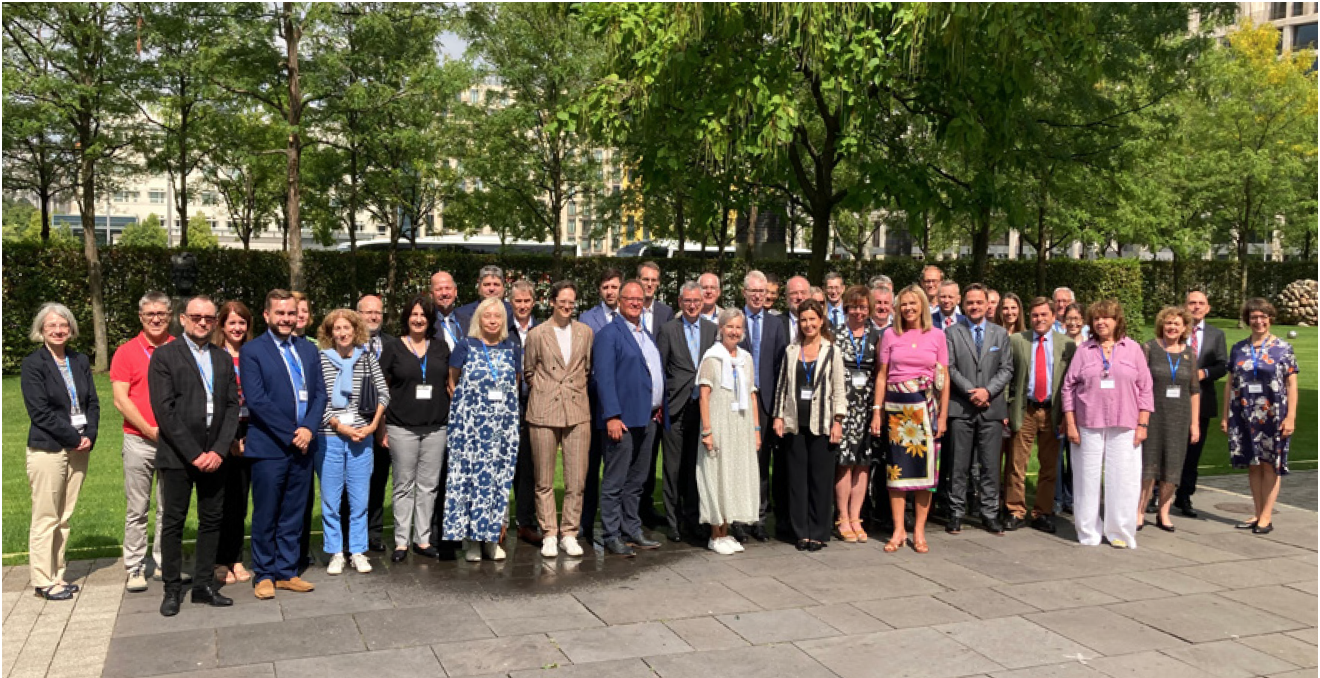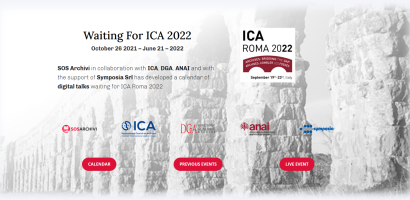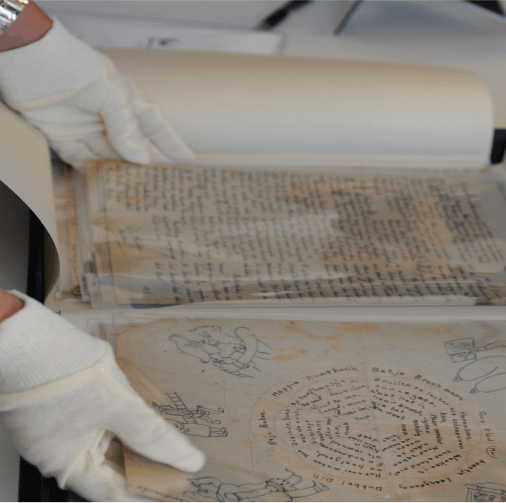
Draft guidelines for Monitoring Access to Holocaust Collections Project presented
During the Athens Spring Plenary meetings and about one year after the project’s launch, the IHRA’s project on Monitoring Access to Holocaust Collections has made great strides. Despite having to overcome many obstacles due to the pandemic, the Project Chair Dr. Haim Gertner (Yad Vashem) and project researcher Elinor Kroitoru shared a draft of the new guidelines at the Athens Spring Plenary. Project Chair Dr. Gertner and Deputy Chair Dr. Veerle Vanden Daelen (Kazerne Dossin, Belgium) also presented the draft guidelines to EUDiA, the European Union Diplomatic Archives. These new standards will serve as a practical tool to help archivists identify Holocaust-related materials.
Monitoring Access to Holocaust Collections Project follows up on the IHRA’s efforts to safeguard the record of the Holocaust
This current project builds upon the findings of the IHRA’s Archival Access Project of 2014–2017. One outcome of this project was the adoption of the IHRA’s working definition of Holocaust-related materials. This definition has served as an important tool, helping archivists around the world to work towards opening their archives and providing full access to vital documentation.
The project also follows up on the pledges made as part of the 2020 IHRA Ministerial Declaration, in which IHRA Member Countries emphasized “the importance of identifying, preserving, and making available archival material, testimonies and authentic sites for educational purposes, commemoration and research.”
Despite great progress, the Monitoring Access Project has noted that many archives around the world still find it challenging to identify which materials are in fact related to the period of the Holocaust. These new guidelines, which the IHRA hopes to finalize this year, are intended to resolve this confusion and to enable archivists, researchers, and anyone interested in archival material to gain access to Holocaust-related materials.
Cooperation with archival institutes is central to the project's approach
Crucial to the success of this ongoing project is continued cooperation with and outreach to archival institutes. The project members have been able to gain valuable insight while speaking with practitioners in the field. They aim to continue this approach in the coming year as they share their draft document for feedback and input.
Most recently, the project team met with EUDiA, the European Union Diplomatic Archives, where the Project Chair and Deputy Chair presented the draft guidelines and explored future opportunities for cooperation. At this meeting, Deputy Chair Veerle Vanden Daelen voiced: “We are making a plea to archivists and curators to understand the ambiguity and diversity of Holocaust-related sources. Experts should work hand-in-hand to allow access to documentation and support quality research.”
For more information about the importance of open access to archives, read this interview with Project Chair Dr. Gertner.
Sign up to our newsletter to
receive the latest updates
By signing up to the IHRA newsletter, you agree to our Privacy Policy




